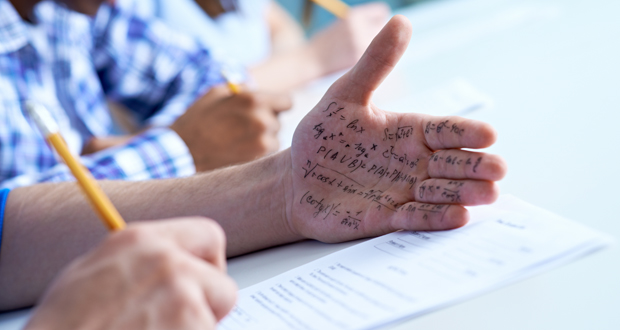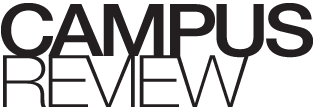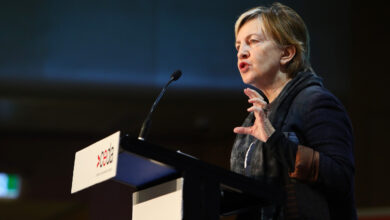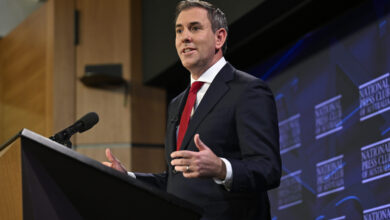Policy & ReformTop Stories
Who’s cheating at uni, and what are we going to do about it?

During your entire career as a student, did you ever cheat on an assignment, an essay or in an exam? Did you ever share your science results with a classmate, ask a friend or family member to proofread your essay, or, under the pressure of a deadline or extenuating family circumstances, cut a corner that you knew was “breaking the rules”?
Please login below to view content or subscribe now.






I can’t see anything wrong with asking a critical friend to proof read an essay. There is nothing available for students at the university level for this type of support. Good proof reading where the reader highlights errors and notes they need to be addressed helps the student to improve in the future. Why would you put asking a family member to proof read in the cheating category?
I agree. I have been providing support for university students for 30+ years and I have always encouraged them to use their peers and family members as critical eyes and as a test of ‘readability’ (with the stipulation of providing CONSTRUCTIVE feedback). I have decades of evidence showing how this improves the students’ own critical eye.
What I see as a bigger and more serious issue is the repeated examples of breaches of academic integrity, corruption, lies and deceit at senior levels across society, from individuals that are supposed to represent role models. The shift to direct students to online support, I believe, is not the most ideal approach to teach skills in both reading and writing, particularly when the issue of academic integrity is not exactly black and white.
The reason a proofreading service is not available at university level is because it is considered unethical. As a learning advisor at a university, my job is to discuss a student’s work with them prior to submission and suggest changes/improvements… BUT NOT MAKE THESE CHANGES MYSELF. I can show them where their grammar is shaky, or where they haven’t answered part of the question, or where their paragraph needs a stronger topic sentence. Pointing out to a student that their topic sentence is weak is not the same as telling a student what to write instead… this is where the line is.
Then it is the student’s responsibility to go away and make the changes on their own, if they chose to do so. This means that they are the sole author of their work. I think that is quite clear.
This is very interesting. What is the way forward? Do we cease all assessments (elephant in the room)?.. What has changed since 20 years ago? It is important to note that advances in technology has also made cheating much easier.
I note this with keen interest “Ask a friend or family member to proofread your essay”, does this constitute cheating?
You know, lying by people in high level management at our university is an everyday event … I cannot understand how a University can be led by people who tell outright lies as a matter of course, whenever those lies serve their own agenda – and yet at the same time, come down hard on students for plagiarism. The hypocrisy is bizarre. There is one rule for people high up the management chain, and another for everyone else.
We recommend getting a family member or friend to proofread assignments and reports, to help with grammar and spelling errors, particularly for English as a second language students. How is this cheating? Many students, including those from Australian schools,have a very poor grasp of spelling and grammar, and anything we can do to help with this is a bonus in preparing students for a career.
Where this becomes a problem is that a document that has been altered by a second party ceases to be a document with a single author – it becomes co-authored. How is a marker able to evaluate the actual writer when they can’t be certain which parts of the writing were done by the student in question? While we may ask students to seek help with grammar and spelling with the best of intentions, it often becomes the case that the helper then asks other questions like ‘is x what you meant to say here?’ or ‘wouldn’t your essay make more sense if you made it about x, and changed it like this…’ and away they go making substantial changes to the student’s work. Even for professional academic skills teachers it can be difficult to draw the line that separates help from too much help, and they have the luxury of thinking about that question for a living. Are casual helpers, despite their good intentions, likely to be across where these lines are? And is it reasonable to expect them to be? I don’t wish to be too great of a pessimist, but I don’t think they are, and I don’t think it is, respectively. As tough as it is on the student, it’s best for them to work toward identifying rectifying issues with their writing on their own (via feedback and conversations with support staff, academics, and peers – not via direct editing by any of these parties or anyone else). And, as tough as it is for the teachers, it’s also a good idea for them to evaluate their own expectations, particularly with regard to students with English as a second or other language. It is, after all, not really reasonable or realistic to expect non-native speakers of English to produce work that is free of grammatical errors.
…gosh, the lines do become blurred. Reviewing journal articles or book chapters, I may occasionally ask ‘is this what you meant to say?’, ‘have you thought about this?’, ‘what about incorporating work by so and so?’, ‘you haven’t addressed your aims clearly’, ‘your work would be of more value if….’ etc. I may also suggest rewording in places in order to clarify meaning. I am then an author???
I am sure I am not the only reviewer who has done this!
So….as you stated Shaun, how much help is too much help?
I’m also curious as to the suggestion of “…rectifying issues with their writing on their own (via feedback and conversations with support staff, academics, and peers..”
Please understand that this is not intended to sound facetious in any way, but how is this, ‘on their own’? and what exactly would be the ‘content’ of these discussion with support staff, academics and peers?
Surely, the right advice in the right way, can encourage students to develop their own critical eye.
Ultimately, I would like to know WHERE EXACTLY do students access this help?
The kind of feedback you are referring to is just feedback, and as I mentioned before I think feedback is just fine. The issue is when the helper CHANGES the document. Giving feedback is one thing, actual editing is something else entirely. You’ll note that in my comment I talked about such situations as becoming a problem when the helper goes ahead and makes the changes.
I also think it’s important to distinguish between writing for publications and for the purposes of assessment. There is a general understanding that publications like journal articles or books can be 1) multi-authored as per the author list, and 2) edited by an editor of some sort (who is usually stated). In cases where I have worked on reviewing publications, if it has reached a point where my input is becoming too substantial I have asked to be added as an author, or at the very least explicitly acknowledged in the acknowledgements section. None of this is case for assessments for university students though, where the expectation is that the work you are marking is the work of that student, and that student alone.
So as far as the line goes, that’s where I tend to draw it. Offer feedback to the student, but don’t go ahead and make the changes to their work – allow the student to act on the feedback themselves.
So where exactly do students access this help? In a number of places. I’m such a person – I’m employed by a university to do exactly this. In fact, most universities employ academic skills staff, and have writing feedback services of one sort or another.
Students bring me written work, I look over it, and then very carefully give them feedback about what they’re doing well and where they could use improvement. However, it’s very much a matter of showing them where to look, but not telling them what to see. I might point out that their argument only becomes apparent in their conclusion for example, and then ask them whether they think that makes their document hard to understand for a marker who doesn’t have the time to read and re-read student essays. When I ask them how they could change it to make things easier on the reader, they usually rightly figure out for themselves that a clear argument statement should be in the introduction somewhere.
The point here is that I NEVER alter their document. And, the feedback I give is carefully considered, and intended to help the student increase their academic literacy in a way that sticks (understanding as opposed to just reproduction of a given example). The point I was hoping to make with my comment earlier is that people usually don’t realise how tricky all of this is.
“… people usually don’t realise how tricky all of this is…”
Yes Shaun, I agree.